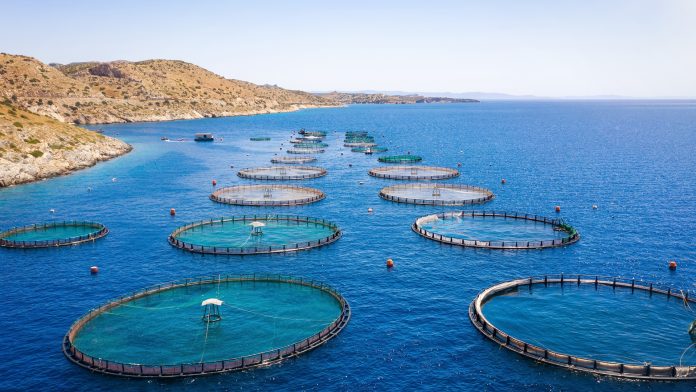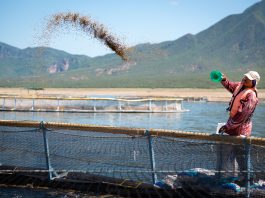The UN has published a report outlining six ways that the fishery and aquaculture industry can accelerate seafood sustainability.
The report is based on the outcome of three calls organised by the United Nations Global Compact Action Platform for Sustainable Ocean Business between 50 stakeholders from policy, business, science and finance, where they discussed ways to accelerate seafood sustainability and development.
The meetings covered the tools and means needed to effectively compare seafood companies, the role of finance in sustainable seafood development, and need for policy and regulatory frameworks to create a level playing field for the seafood value chain.
The authors of the report commented: “With both the UN Food Systems Summit and the 26th UN Climate Change Conference (COP 26) taking place this year, 2021 represents a unique opportunity for the world to accelerate the development of sustainable seafood production.”
The report outlined six key areas for accelerating seafood sustainability, and made recommendations in each area:
1. Ratification, regulatory compliance, and meta-governance
This focuses on the central role played by governments in accelerating market changes aligned with science and supporting sustainable management practices. The report acknowledges The European Commission’s Farm to Fork Strategy and Japan’s acts to ban illegal, unreported, and unregulated (IUU) seafood as examples of science-led legislative frameworks. As well as this, improved enforcement of existing rules and regulations would also decrease the incentives for unsustainable actions.
It goes on to say that implementation of international legislation should be a priority to governments wishing to combat IUU, and that in practice, this needs to be measure of “centralised meta-governance” to draft regulatory guidelines and instruments. For example, the UN Food and Agriculture Organization (FAO) provides frameworks for incorporating international instruments into national policy and law. These are vital to create a level playing field and enable support and capacity building between countries.
Finance and business can support this by utilising international standards and conventions as references when financing projects.
2. Ensuring a socially sustainable seafood sector
This involves ensuring a socially sustainable seafood sector and acknowledges the inseparable link between the environment and human rights. More specifically, it recognises the link between IUU fishing and poor labour conditions.
Policy makers can push the introduction of mandatory human rights due diligence legislation and advocate for incorporating minimum safeguards on human rights into potential future financial legislative frameworks.
3. Unlocking sustainable finance
There is currently a need to increase the financing of sustainable seafood. In order to create the right enabling environment to unlock private capital towards seafood, entering into partnerships with multilateral banks, such as the World Bank, can be significant. As well as this is the incorporation of non-financial sustainability factors into the financial system. This includes action such as embedding sustainability requirements into contracts and loan documentation and mobilising financial players by adapting stock exchange listing rules.
4. Ensuring access to high-quality, standardised non-financial data
This emphasises the importance of access to high-quality sustainability related data, ratings, and research. This is essential for decision making within companies as well as for investors wishing to assess the sustainability of companies in the sector.
5. Beyond transparency: from quantifying progress to rewarding performance
This addresses the need to reward performance and progress towards sustainable seafood production. To achieve this, it is important to enhance monitoring and tracking of improvements, and therefore it is necessary to develop standardised measurement tools that take into account the entire value chain and allow companies to monitor and quantify progress made against commonly defined science-based targets.
Then, government schemes and financial institutions can reward companies that are progressing towards seafood sustainability.
6. Recognising seafood within sustainable food systems
This looks to accelerate the development of seafood sustainability pertains to the importance of recognising the present and future role of seafood in global food systems. Along with this, coordinated, cross-governmental policy making is necessary. For example, the upcoming 2021 UN Food System Summit will be an important opportunity to bring together cross-governmental bodies and coordinate future action.
The report recognises the fundamental role the seafood industry has to play both in ensuring global food and nutrition security and creating sustainable food systems.
The authors of the report conclude that “moving towards enhanced sustainability in the seafood sector will undoubtedly demand a collective approach across the entire value chain.”









